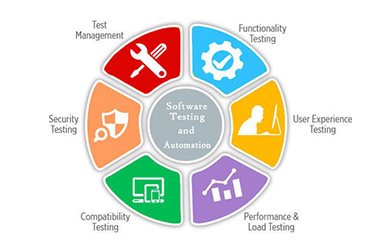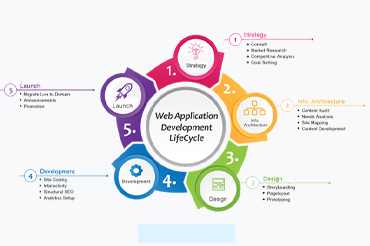
Introduction:
In the ever-evolving digital landscape of 2024, user experience (UX) design has become more critical than ever. As technology continues to advance and user expectations soar, understanding and mastering UX principles have become indispensable skills for anyone involved in creating digital products. In this blog post, we will explore the significance of learning UX in 2024 and how it shapes how we interact with the digital world.
1. Rising Digital Dependences
The year 2024 marks an era where our reliance on digital platforms has reached unprecedented heights. From online shopping and social media to remote work and virtual experiences, users are constantly engaging with digital interfaces. In this context, the UX Designer plays a crucial role in ensuring that the interactions are seamless, enjoyable, and efficient.
2. User-centric approach
User Experience (UX) design is a discipline that revolves around the idea of putting users at the center of the design process. It involves gaining a deep understanding of users' wants, needs, preferences, and behaviors and leveraging this knowledge to create designs that are intuitive, easy to use, and accessible. With the rapid pace of technological advancements, businesses that prioritize user satisfaction by creating user-centric designs will stand out in the marketplace. By 2024, it is predicted that such companies will gain a significant competitive advantage over those that neglect the importance of UX design.
3.Technological Advancement
As technology continues to evolve at breakneck speed, new gadgets, interfaces, and interaction techniques are constantly emerging. Keeping pace with these changes and adapting designs to meet the evolving needs and behaviors of users is crucial, and this is where UX (User Experience) design comes into play. With the rise of augmented reality, virtual reality, and voice-based interfaces, UX designers have to come up with innovative ways to enrich user experiences across multiple platforms. Staying current on the latest trends and technologies in UX, design is essential for creating user-friendly, intuitive, and engaging digital products and services.
4. Emphasis on Accessibility and Inclusivity
As we move towards the year 2024, the design industry is placing a greater emphasis on inclusivity and accessibility. In this new landscape, UX designers are tasked with creating interfaces that cater to a diverse range of user needs, ensuring that digital experiences are available to everyone, regardless of their abilities or disabilities. This requires embracing the responsibility of making technology truly inclusive by learning the principles of UX design. By doing so, designers can enable people from different backgrounds and occupations to use digital products with ease and comfort.
5.Data-Driven Decisions making
Data plays a critical role in shaping digital experiences, and its significance cannot be overstated. User experience (UX) designers utilize data analytics to gain insights into user behavior, preferences, and pain points. Understanding how to interpret and apply these analytics is a crucial aspect of UX education, as it empowers designers to make informed decisions that drive continuous improvement. By leveraging data, designers can create more effective and user-centric experiences that meet the needs of their target audience
6.Job Opportunities and Career Growth
In today's digital age, the importance of delivering outstanding digital experiences is on the rise. As a result, the demand for talented and skilled UX designers is growing rapidly. By mastering UX, you can open up a world of career opportunities in a wide range of industries, from established tech giants to innovative startups. Additionally, the ever-evolving nature of UX ensures that there is always something new to learn, making it an exciting and rewarding field for individuals who are looking for dynamic and fulfilling professions.
7.Building Brand Loyalty
In today's highly competitive market, creating a memorable user experience is crucial for businesses to stand out from the crowd. Brands that prioritize user experience and invest in building intuitive and user-friendly interfaces can foster a strong sense of customer loyalty. By learning the principles of UX design, professionals can effectively contribute to building positive brand relationships. This is because satisfied users are more likely to return and continue to use a product or service, as well as recommend it to others. By focusing on UX, businesses are better positioned to create loyal customers and brand advocates.
Conclusion:
As we look ahead to the year 2024 and beyond, it is clear that the importance of learning UX cannot be overstated. The world of digital technology is constantly evolving, and users' expectations are changing just as quickly. In this landscape, UX design is not simply a skill to be mastered; it is a mindset that places the user at the very heart of the design process. Whether you are a designer, developer, marketer, or business owner, embracing UX principles will be essential to your ability to navigate the digital era and succeed in it. By focusing on the user experience, you can create products and services that are intuitive, engaging, and effective, meeting the needs of your customers and setting your business apart from the competition.

























